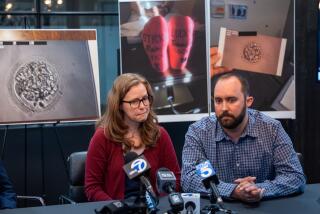Fertility ethics
The mother of the new octuplets reportedly would like to use her fame to get a stint as a TV child-rearing expert. It’s hard to imagine seeking parenting advice from someone who, with no real financial stability and no father for her six other children, would nonetheless use the most extreme form of infertility treatment to bear eight more.
Not that there aren’t important questions to be raised, but they should be brought up by medical authorities and asked of the doctor or doctors who performed the serial in vitro procedures described by the babies’ grandmother. Did they do a psychological evaluation of a woman who wanted to get pregnant again after having six children in rapid succession, the oldest of whom is 7? (Fewer than one in five fertility specialists do, a study found.) Why were eight embryos implanted in this instance, when the standard calls for far fewer? Wasn’t that especially important considering the extra medical risks involved if the mother would not consider a selective abortion?
Fertility treatment has brought joy to many, but there also have been abuses. In a 1990s case, UC Irvine fertility doctors stole women’s embryos and implanted them in other women. In 2006, a Westwood doctor was duped by a 67-year-old woman who had a baby with his help; she told him she was 53, two years younger than his cutoff age for fertility treatment.
Society must guard against judging who is allowed to have children. A doctor cannot refuse to provide fertility treatment to a lesbian, as the state Supreme Court rightly ruled, because of his own moral objections. Nor is marital status or wealth a fair criterion for calculating someone’s fitness to be a parent; nor, for that matter, how many children they want to have, as long as they can provide the necessary care. The rearing of children is a personal decision, unless there is mistreatment.
That’s different from the medical considerations that should have played a part in the octuplets case. Doctors have an obligation to weigh the health risks to both mother and child -- and those are considerable with so-called high-multiple births. The guidelines set down by medical organizations affect whether insurance will cover a procedure, but carry little force otherwise. Clearly, the field of fertility treatment needs more than guidelines.
The mother of the octuplets might get magazine deals and free diapers -- or perhaps not. The revelations about her have resulted in more derision than delight. She and her family will live with the consequences, happy or not. That’s their business. Curbing the potential for medical abuse, though, is a matter of public concern.
More to Read
A cure for the common opinion
Get thought-provoking perspectives with our weekly newsletter.
You may occasionally receive promotional content from the Los Angeles Times.






